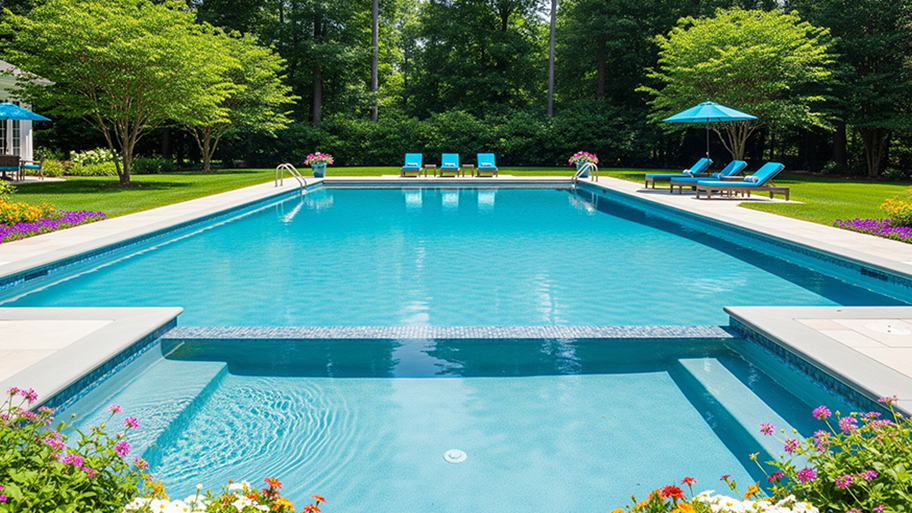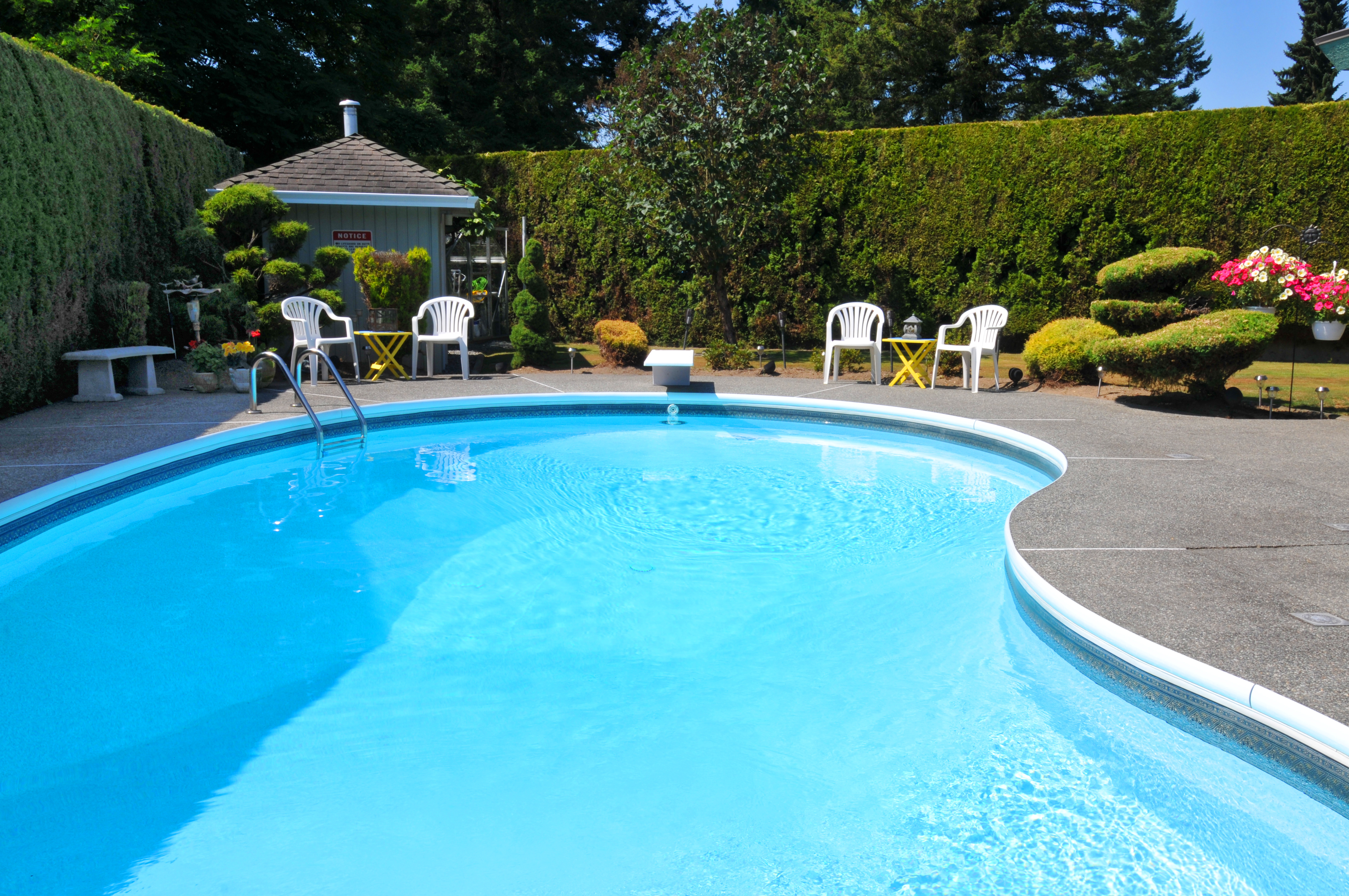
Many factors affect indoor pool costs. From different types and shapes to installation and maintenance, here’s what to consider when pricing out your project.
Pool construction and installation costs depend on your project and location. Check with a local pro for your specific job.
You should expect a pool to add about $50 to your monthly electricity bill.
Save on electricity costs by only running your pump while using your pool, but be prepared for more manual maintenance and cleaning.
Opt for LED lights rather than halogen to save about 500%.
If your monthly bill seems high, consider swapping to a variable-speed pump, which will pay itself off in 1 to 2 years.
Budgeting for a pool is complex, but remember to consider how much a pool costs per month in electricity. Running a pool adds about $50 per month to your electricity bill. However, monthly energy costs for your pool can range anywhere from $10 to $300, depending on your pool pump type. If you feel you’re paying too much to run your pool, this guide goes over the factors contributing to your energy costs.
When weighing the cost to build a pool, don’t forget the long-term cost to run it on a monthly basis. Your pool's monthly electrical usage depends on a combination of the following factors.
The biggest cost factor for pool electricity usage is the pump you use. Pool pumps vary by type, size, and brand. Some are designed specifically for better efficiency, while others use more power.
The three most common types of pool pumps include single-speed, variable-speed, and heat pumps. If you're unsure which you have, a local pool service professional can inspect your system and help determine if there's a more cost-effective option for your pool.
The larger your pool, the harder your system has to work. If your pool has a heater or pump, it will take more energy to heat the entirety of a larger pool. While you can't do much to change the size of your pool, you may be able to purchase a more energy-efficient pump to meet your needs.
Even if you have an energy-efficient pool pump, consider how much work it's doing. If you leave your pump running constantly, it will cause a spike in your electricity bill. The best way to save money is to run your pump only while using your pool.
Turning your pump off may lead to more floating leaves, bugs, and other debris for you to fish out of your pool. You can invest in the cost of a pool cover to help keep out debris while your pump is off.
Your home's geographic location is a significant cost factor for your electric bill. Electricity prices vary significantly by region since utility companies charge different rates. Look at the standard electricity rates in your area to see how your costs compare. You can also look at the statewide average rates provided by the U.S. Energy Information Administration.
If you have a pool heater, your local climate will also impact your pool running costs. For example, you’ll spend more to heat your pool when the weather is cooler.
Many inground pools feature lighting that adds character and makes the pool safe and fun to use at night. If you have lights, they'll consume energy every time you turn them on. Consider the cost of replacing pool lights and switching any halogen lights to LEDs. While the up-front cost is higher, LED bulbs are five times less expensive to run than halogen bulbs.

A pool pump sits at the heart of your pool system. It circulates water and chemicals evenly throughout the pool while moving debris out. There are several types of pumps, and the kind you have can impact how much you pay to run it. Here's a breakdown of the national average electrical costs for each common type of pool pump:
Variable-Speed Pump: $10–$50 per month
Single-Speed Pump: $40–$150 per month
Heat Pump: $100–$300
Heat Pump (With Pool Cover): $25–$100 per month

Running a variable-speed pump can cost $10 to $50 per month in electricity. These pumps are the most energy-efficient type since they have different speed settings for different tasks. Lower speeds help filters work better, while higher speeds are better for vacuuming. This efficiency makes variable-speed pumps the best choice for most pools.
Running a single-speed pump can cost $40 to $150 per month in electricity. Unlike variable-speed pumps, they always run at maximum speed. This uses more energy and tends to lead to higher monthly electric bills on average.
Running a pool heater or heat pump can cost $100 to $300 per month in electricity. The larger your pool, or the higher your preferred water temperature, the more electricity the pump will use.
If you look at your energy bill and feel there's room for improvement, a few changes to your pool system can help you save money. If you have a single-speed pump, hire a pool electrician to help you weigh the cost of a new pool pump against the potential savings from a variable-speed pump. In most cases, the new pump will pay for itself in the first year or two thanks to energy savings.
If you have a heat pump, you could simply lower the temperature setting on your pump. However, consider investing in a pool cover to save without losing heat. A cover can help contain heat without the need to continue running your pump. This can lower your monthly costs from an average of $200 per month to $25 to $100 per month.
From average costs to expert advice, get all the answers you need to get your job done.

Many factors affect indoor pool costs. From different types and shapes to installation and maintenance, here’s what to consider when pricing out your project.

Looking to take a dip? Container pools are a rising, eco-friendly trend. This guide will help you understand shipping container pool costs.

Installing a pool heater ensures that your pool gets used as much as possible, but is the pool heater cost worth it? Let’s find out.

Baking soda is a budget-friendly way to tackle DIY pool maintenance. Our guide explains how to add baking soda to a pool.

The type of pool finish you choose is the best way to both show off your personal style and protect your pool in the long run. Let's walk through your options for pool finishes.

Discover the cost to install a solar pool heater, including average prices, key cost factors, and tips to save on your project.